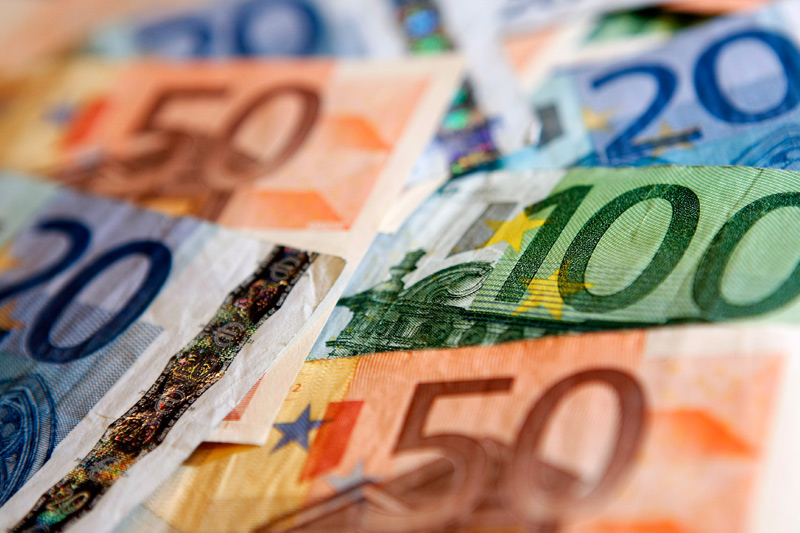Investing.com - The euro is trading slightly higher against the U.S. dollar during Wednesday’s Asian session despite a bleak outlook from the International Monetary Fund regarding the euro zone economy.
In Asian trading Wednesday, EUR/USD rose 0.05% to 1.3184. The pair was likely to find support at 1.3021, the earlier low, and has broken resistance at 1.3162, the high from Feb. 27.
The IMF said said Tuesday the euro zone remains the weakest part of the global economy. IMF added in its World Economic Outlook that a prolonged period of slack growth in the euro zone will diminish the chances for expansion in Central and Eastern Europe.
IMF again said the European Central Bank should lower its benchmark interest to help bolster economic growth while engaging in other stimulus measures and slowing efforts to pare budget deficits.
In euro zone economic news out Tuesday, Germany's ZEW index of economic sentiment index dropped to 36.3 in April from 48.5 in March, falling short of market expectations for a 42.0 reading.
The broader eurozone ZEW economic sentiment index ticked down to 24.9 this month from 33.4 in March, also falling short of market expectations, which were forecasting a 31.5 reading.
Eurostat reported Tuesday that the euro zone's consumer price index remained unchanged at an annualized rate of 1.7% in March, in line with expectations.
Later Wednesday, Germany is to hold an auction of 10-year government bonds while the U.S. will release industry data on mortgage applications as well as official data on oil inventories.
Elsewhere, EUR/JPY jumped 0.61% to 129.34. The pair sought to test support at 125.00. EUR/AUD rose 0.19% to 127.05.
In Asian trading Wednesday, EUR/USD rose 0.05% to 1.3184. The pair was likely to find support at 1.3021, the earlier low, and has broken resistance at 1.3162, the high from Feb. 27.
The IMF said said Tuesday the euro zone remains the weakest part of the global economy. IMF added in its World Economic Outlook that a prolonged period of slack growth in the euro zone will diminish the chances for expansion in Central and Eastern Europe.
IMF again said the European Central Bank should lower its benchmark interest to help bolster economic growth while engaging in other stimulus measures and slowing efforts to pare budget deficits.
In euro zone economic news out Tuesday, Germany's ZEW index of economic sentiment index dropped to 36.3 in April from 48.5 in March, falling short of market expectations for a 42.0 reading.
The broader eurozone ZEW economic sentiment index ticked down to 24.9 this month from 33.4 in March, also falling short of market expectations, which were forecasting a 31.5 reading.
Eurostat reported Tuesday that the euro zone's consumer price index remained unchanged at an annualized rate of 1.7% in March, in line with expectations.
Later Wednesday, Germany is to hold an auction of 10-year government bonds while the U.S. will release industry data on mortgage applications as well as official data on oil inventories.
Elsewhere, EUR/JPY jumped 0.61% to 129.34. The pair sought to test support at 125.00. EUR/AUD rose 0.19% to 127.05.
